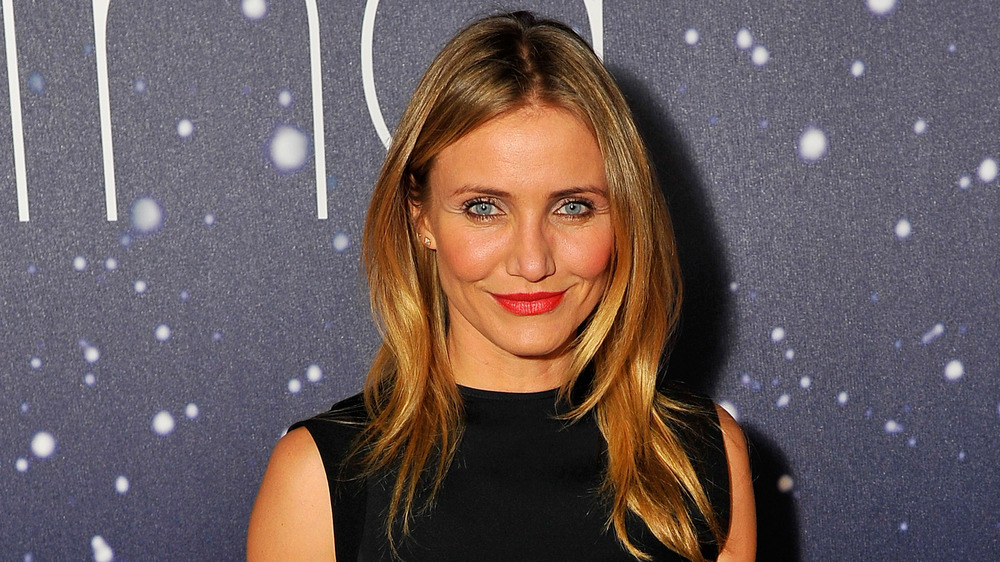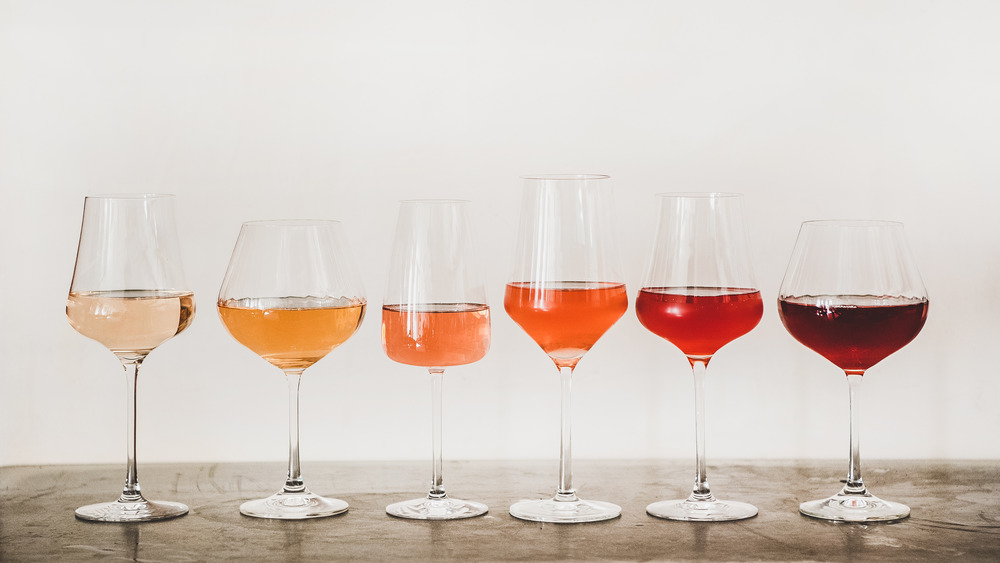What You Need To Know About Cameron Diaz's 'Clean Wine'
In July 2020, actress Cameron Diaz took a break from her retirement to try out something new: wine. With the help of entrepreneur and close friend Katherine Power, Diaz began her new venture with Avaline, a 'clean' wine brand they hoped would take over shelves nationwide.
The actress discussed her first steps into the wine world with InStyle, explaining that the idea was born out of the realization that the two friends had no idea what was in the wine they were drinking. "If you're not drinking wine with organically grown grapes, you're drinking pesticides," Diaz told the outlet. "it's nothing you want inside of you."
At a steep $24 price point (available in stores and online), the natural bottles of white and rose have struggled to capture the attention of casual wine drinkers and enthusiasts alike. According to the New York Post, a survey of 400 households resulted in a D-rating for the brand and the title of least favorite celebrity white wine – ouch. "Why?" you ask? Critics haven't been too pleased with the foggy marketing behind Diaz's attempt to take a cut out of the organic alcohol world.
Avaline wine may be 'clean,' but it's still full of additives
Avaline wines may be made from organically fermented grapes, but that doesn't mean they're free of additives. Both the mass-produced white and rose make use of several additional ingredients to stabilize them for mass production. Commercial yeasts, Sulphur, and Pea Protein help keep the wine from clouding up and crystalizing on customers, but none are exactly necessary or 'clean' ingredients (via Vignette Wine). AG Daily also notes that the main ingredient in wine – ethanol – is far from 'clean,' since alcohol is a toxin on its own.
In an interview with The Guardian, pharmacologist Dr. Creina Stockley says the 'clean' approach that Avaline is taking is a "marketing exercise" she's seen far too many times before in the $52.5 billion wellness market. According to Diaz, Avaline is all-natural, vegan-friendly, and free of any unnecessary add-ins, but Vinography reaffirms that isn't entirely true. While the main mission of the brand was to tackle unregulated wine, Avaline still fails to list its full ingredient list on the bottle, making the company's mission a pretty moot point. The term 'clean' wine is as unregulated as the wine industry itself, says Vinography. In conclusion: If there's one thing we side with Diaz on here, it's that you can't always trust a bottle's label.

